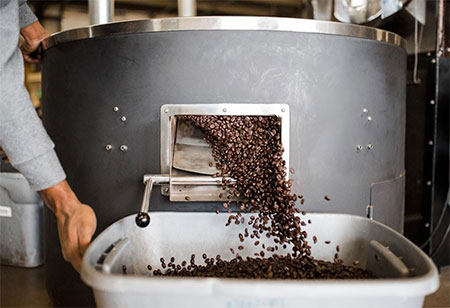
In the fast-moving world of food manufacturing, efficiency is key to staying competitive. Plant managers continuously seek new methods to improve operations, enhance productivity, and ensure consistent product quality. Adopting innovative practices can lead to significant gains in these areas. Keep reading to discover strategies that can be implemented to increase efficiency in food manufacturing plants.
Lean manufacturing principles focus on creating more value with less work by eliminating waste. Applying these principles to food production can lead to more efficient use of resources, less downtime, and a smoother workflow. It begins with a thorough assessment of all production processes to identify and eliminate non-value-adding activities.
Continuous improvement is a central aspect of lean manufacturing. It encourages workers at all levels of the organization to suggest small, incremental changes that can add up to significant efficiency gains. This collaborative approach not only enhances the production process but also boosts employee morale and ingrains a culture of efficiency.
It's also important that your food manufacturing facility has the right equipment, such as refrigeration coils, evaporator coils, and other refrigeration systems. Food products should be kept at the correct temperatures throughout processing and storage, critical for both safety and quality.
Streamlining Supply Chain Management for Food Manufacturers
Optimizing the supply chain is crucial for food manufacturers seeking enhanced efficiency. By establishing a seamless flow of ingredients, packaging, and finished products, companies can reduce wastage, save time, and increase profitability. The key lies in having a well-coordinated network that allows for real-time adjustments to inventory levels and production schedules.
Technology plays a central role in streamlining the supply chain. The use of advanced software systems can provide valuable insights into demand forecasting, inventory management, and logistics. Having this data at one's fingertips enables manufacturers to make informed decisions rapidly, cutting down lead times and reducing excess stock.
An efficient supply chain extends beyond mere procurement and logistics. A responsible fuel supplier in Manitoba, for example, could provide steady and sustainable fuel supply solutions to power food production, further enhancing the plant's operational efficiency.
 Implementing Automation in Food Processing
Implementing Automation in Food Processing
Modern food manufacturing is increasingly turning to automation to streamline production processes. By integrating advanced robotics and intelligent systems, facilities can significantly reduce manual labor, minimize errors, and increase the speed of production. Automation also enables precise control over ingredient mixing and packaging, ensuring consistent product quality and portion sizes.
Investing in automated equipment may entail a significant initial cost, but the return on investment can be substantial. Machines can work around the clock, often performing tasks faster and with greater accuracy than human workers, leading to increased output and lower production costs over time. Furthermore, automation in specific areas, such as sorting and palletizing, can boost overall plant efficiency.
Training and Employee Engagement Strategies for Improved Productivity
At the heart of any efficient food manufacturing plant are its employees. Providing comprehensive training ensures each team member understands their role and performs tasks efficiently. This investment in human capital can lead to fewer errors, faster response times, and better use of technology and equipment.
Employee engagement is as crucial as training. Engaged employees are more likely to invest effort into their work, which can positively impact productivity. Creating a culture of ownership and accountability empowers workers to take the initiative to solve problems and improve processes.
Incentive programs can motivate staff to prioritize efficiency. Whether through recognition, bonuses, or career development opportunities, rewarding employees for their contributions to productivity can encourage a more committed and proactive workforce.
Altogether, these strategies can form an integrated approach to bolstering efficiency in food manufacturing plants. By embracing technological advancements, fine-tuning supply chains, implementing lean principles, upholding scrupulous quality control, and nurturing a skilled and engaged workforce, manufacturers can enjoy increased productivity and competitiveness in a challenging market.
We use cookies to ensure you get the best experience on our website. Read more...